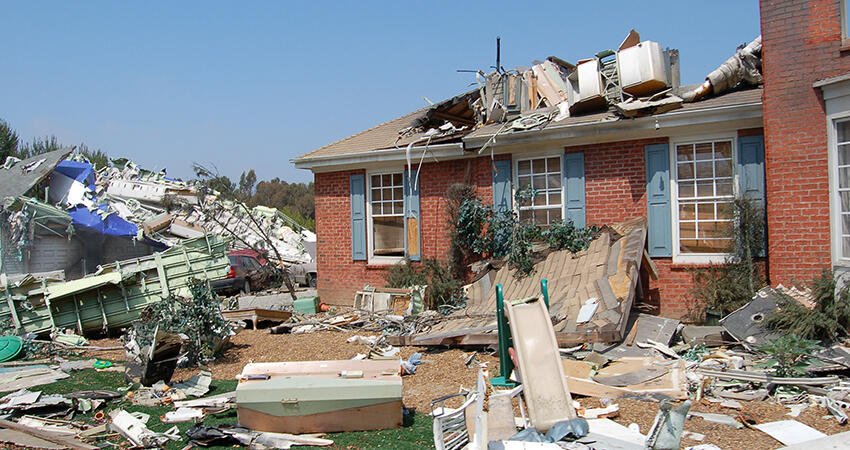
(Eniko Balogh/Shutterstock)
How Landlord-Tenant Laws Affect Eviction Rates after Climate Disasters
- Title:
-
Preventing Evictions after Disasters: The Role of Landlord-Tenant Law
- Author:
-
E.L. Raymond, T. Green and M. Kaminski
- Source:
- Publication Date:
-
2021
Evictions can destabilize families and worsen overall well-being, and they disproportionately affect households with low incomes. As climate disasters threaten residents in vulnerable regions, being evicted can further devastate those renters. However, local tenant protections may help residents stay stable in their housing after disasters.
The authors in this study explored this question by asking: Do extreme weather events lead to rising eviction rates? And do eviction rates rise more in places that have more probusiness (fewer landlord-tenant laws), contradictory (pro-landlord laws and laws protectionist of tenants), or protectionist landlord-tenant legal frameworks?
The authors conducted a literature review of landlord-tenant typologies and identified four sites with different state landlord-tenant law provisions, all of which experienced flooding events classified by the United States Geological Survey and the Federal Emergency Management Agency from 2012 to 2015.
The sites included New Haven, Connecticut, which has strong tenant protections; South Carolina and southern Alabama, which have both landlord and tenant protections; and the Florida panhandle, which has strong landlord protections. Tenant protections can include rent control statutes and antidiscrimination policies. Pro-landlord statutes can include allowance of late fees, requiring tenants to make repairs, and bans on rent control efforts. While controlling for socioeconomic characteristics, the authors examined the change in eviction filings by census block group in counties that were affected by a storm and those that did not have storm damage. They used data from Princeton University’s Eviction Lab to analyze eviction filings before and after their major flooding events.
Key findings
- Immediately following disasters, eviction filings increased more in places that have more laws that favor landlords. Connecticut, the only place of interest with protectionist landlord-tenant laws, did not have an increase in evictions following its flooding event. Contrarily, Alabama, South Carolina, and Florida saw an increase in eviction filings following their disasters.
- South Carolina and Alabama’s tenant protections did not outweigh their pro-landlord policies following disasters, regarding increases in evictions.
- Eviction courts in probusiness states tend to prioritize collecting rent. Regardless of tenant legal protections, eviction filing rates in these states are comparable to those without.
- Probusiness and contradictory (having both tenant and landlord protections) states have the highest eviction filing rates. Contradictory states have higher racial inequality, with areas with predominantly Black residents having higher eviction filing rates than areas with majority white residents.
- Tenant protections aren’t applied equally across states where they exist, leading to variations in how evictions are prevented.
Policy implications
- The federal government should consider investing in research to examine evictions as a driver of displacement, as well as eviction prevention at local, state, and national levels, to better understand eviction in the context of disaster resilience.
- A focus on long-term policies to support those facing eviction is necessary to address the gap between immediate recovery assistance and months-long eviction moratoriums.
- If the rate of evictions doesn’t decrease 12 months following a climate disaster, a pause on evictions can ease the economic burden on residents.
- To avoid enormous rent debts piling after an eviction moratorium, policymakers can employ tenant rental assistance.
- As protections lack in some areas that are vulnerable to climate disasters, long-term legal assistance offered to residents can help combat destabilizing court practices.


